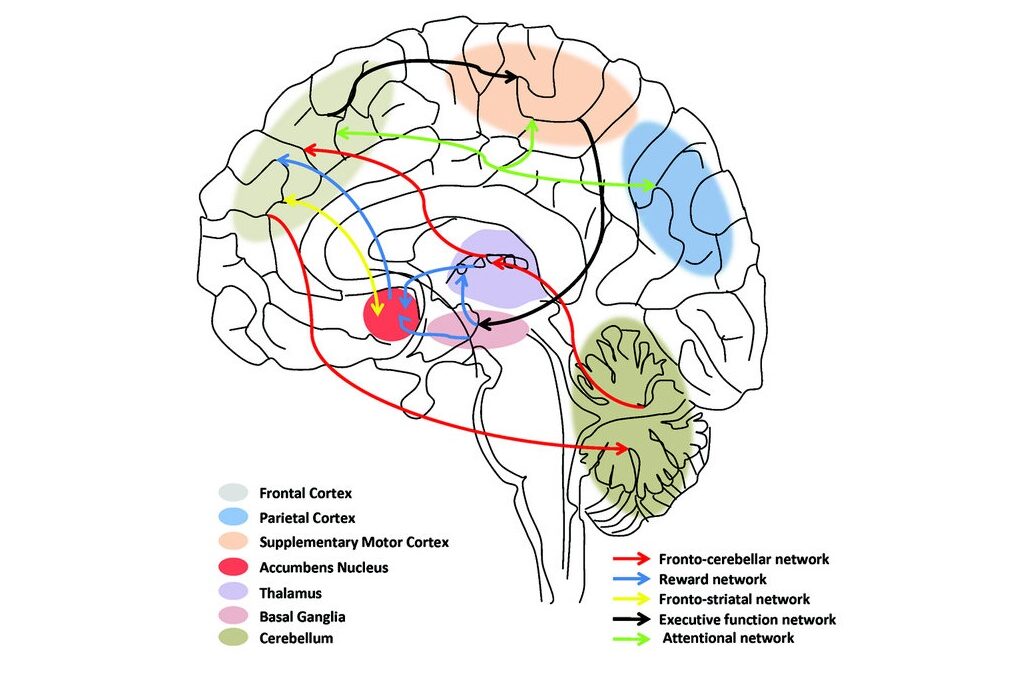ADHD is commonly viewed through a lens of brain-based dysfunction — a neurodevelopmental condition marked by inattention, impulsivity, and hyperactivity. But for many people, this clinical description doesn’t fully capture the lived experience of ADHD, especially when it’s layered with emotional dysregulation, chronic shame, or deep-rooted anxiety. Increasingly, clinicians and researchers are recognizing that trauma and ADHD often walk hand in hand — not as separate conditions, but as overlapping patterns that emerge from early relational experiences.
ADHD or Adaptive Response?
Dr. Gabor Maté, author of Scattered Minds, reframes ADHD not as a disorder, but as an adaptive response to chronic stress or emotional disconnection during early development. From this perspective, the inattentive child isn’t broken — they’re tuning out as a way to cope with environments that felt overwhelming, unsafe, or emotionally unavailable.
“The tuning out — the inattention — is not a disease. It’s a coping mechanism.”
— Gabor Maté, MD
This lens opens the door to a more compassionate understanding of ADHD: not just as a fixed brain disorder, but as a nervous system shaped by experience.
Trauma and the ADHD Nervous System
Trauma, particularly complex or relational trauma (C-PTSD), can result in:
- Hypervigilance or constant scanning for threat
- Dysregulated attention and emotion
- Impulsivity or reactivity
- Shutdown, dissociation, or numbness
These are also hallmarks of ADHD — suggesting that for some, what gets diagnosed as ADHD may actually be (or include) the effects of unresolved trauma.
This overlap is echoed by trauma-informed clinicians like Dr. Arielle Schwartz and Dr. Thomas Brown, who point to executive function impairment as a common thread linking ADHD and trauma — especially when early environments lacked safety, attunement, or co-regulation.
IFS: A New Way to Understand ADHD from the Inside Out
Internal Family Systems (IFS), developed by Dr. Richard Schwartz, offers a powerful framework for understanding the inner lives of people with ADHD. IFS views the psyche as a system of “parts” — each with its own role, emotion, and history. These include:
- Managers that try to control or perfect to avoid shame
- Firefighters that act out, distract, or numb through impulsive behavior
- Exiles that carry wounds of rejection, fear, or unworthiness
In the context of ADHD, a person might have:
- A manager part constantly judging them for being disorganized
- A firefighter part that uses screens, snacks, or scrolling to avoid overwhelm
- An exile part that holds deep shame from being told “you’re lazy” or “too much” as a child
- By helping people connect with their core Self — the calm, curious, compassionate center of their being — IFS allows these parts to be seen, heard, and healed.
“ADHD isn’t just a problem of attention — it’s a story of inner conflict, protection, and survival.”
— Derek Scott, IFS therapist
How Trauma-Informed & IFS Work Can Help
Whether someone has a formal ADHD diagnosis or just resonates with the traits, trauma-informed and IFS-based approaches offer real hope. Here’s how:
1. Reframing the Narrative
- Moving from “what’s wrong with me?” to “what happened to me?”
- Reducing shame and self-criticism, which often intensify symptoms
2. Healing the Nervous System
- Using somatic and relational practices to create safety in the body
- Supporting regulation through co-regulation, breath, or polyvagal-informed methods
3. Understanding Internal Conflicts
- Mapping out parts that sabotage focus, resist structure, or seek constant stimulation
- Exploring the protective roles of procrastination, forgetfulness, or reactivity
4. Restoring Self-Leadership
- Building a relationship with the Self — the inner leader who can bring compassion and clarity to the chaos
- Moving from reactivity to intentionality
A Compassionate Way Forward
If you’ve struggled with ADHD traits and also carry trauma — from childhood, school, relationships, or chronic stress — you’re not alone. What may look like laziness or dysfunction is often a brilliant system doing its best to survive.
Trauma-informed and IFS-aligned approaches don’t aim to “fix” you — they help you understand your inner world, heal what hurts, and reclaim your agency. And in doing so, they offer something that’s often missing from traditional ADHD treatment: self-trust and compassion.
Resources for Further Exploration:
- Scattered Minds by Dr. Gabor Maté
- Self-Therapy by Jay Earley (IFS approach)
- Your Brain’s Not Broken by Dr. Tamara Rosier
- IFS Institute
- ADDitude Magazine (search for “IFS” or “trauma”)

